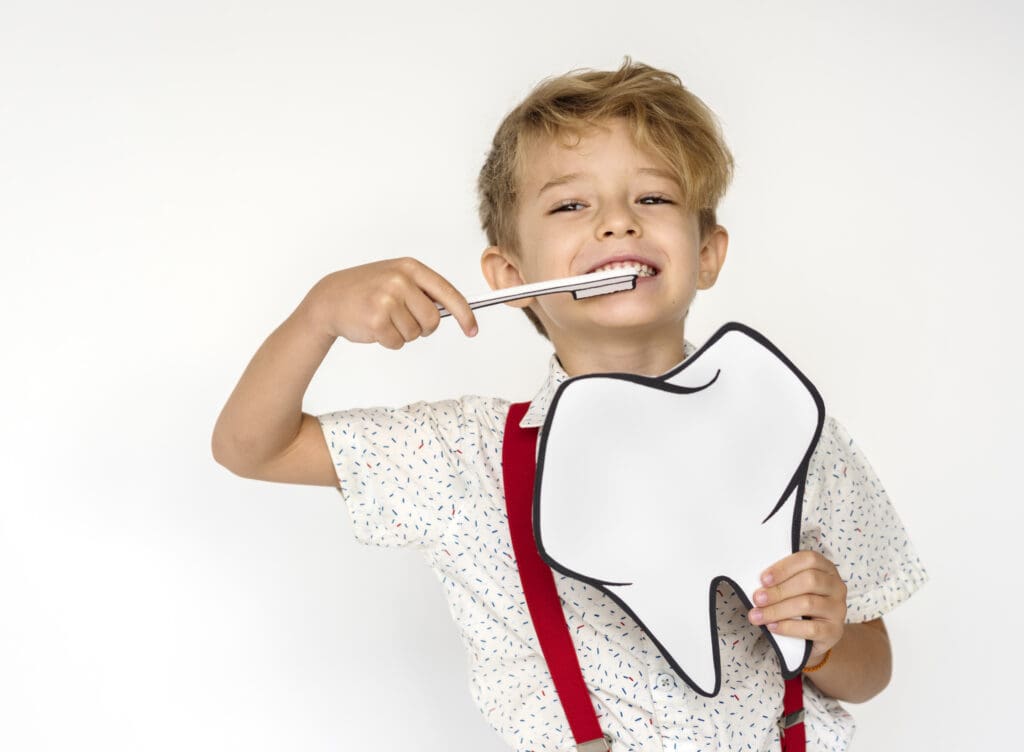Ensuring a healthy start for your child’s smile is one of the most vital investments you can make in their overall well-being. While many parents might assume that primary teeth are less important since they eventually fall out, the reality is that pediatric dentistry plays a crucial role in laying the foundation for a lifetime of optimal oral health. From their very first tooth, children face unique dental challenges that require specialized care. This comprehensive guide will explore the top five compelling benefits of bringing your child to a dedicated pediatric dentist, highlighting how early intervention and specialized care can significantly impact their present and future dental health.
Why Early Dental Care Matters: More Than Just Teeth
The scope of pediatric dentistry extends far beyond simply “fixing” cavities. It encompasses a holistic approach to a child’s oral health, considering their developing anatomy, unique behavioral needs, and susceptibility to specific dental issues. Early dental visits are paramount, establishing a positive relationship with dental care from a young age.
Setting the Stage for a Lifetime of Healthy Habits
One of the most significant advantages of pediatric dentistry is its emphasis on education and prevention. Pediatric dentists and their teams are experts in communicating with children and parents, teaching effective brushing and flossing techniques tailored to a child’s age and dexterity. They explain the importance of a balanced diet and advise on limiting sugary snacks and drinks. By instilling these habits early, children develop a positive relationship with their oral hygiene routine, reducing the likelihood of dental anxieties and fostering a proactive approach to their health. This foundational knowledge is invaluable, empowering families to maintain good oral health at home.
The Top 5 Benefits of Pediatric Dentistry
1. Cavity Prevention and Early Detection
Children are particularly susceptible to cavities, often due to dietary habits, less developed brushing skills, and the unique morphology of their primary teeth. Pediatric dentists employ a range of preventive strategies to combat this common issue.
- Fluoride Treatments: Professional fluoride applications strengthen tooth enamel, making teeth more resistant to acid attacks from bacteria and sugars.
- Dental Sealants: These thin, protective coatings are applied to the chewing surfaces of molars, acting as a barrier against food particles and bacteria that can cause decay in hard-to-reach grooves.
- Regular Check-ups: Consistent examinations allow for the early detection of demineralization or small cavities, enabling prompt intervention before they become larger, more painful, and more costly problems. Early detection is key to minimally invasive treatments.
2. Monitoring Oral Development and Growth
A pediatric dentist is uniquely trained to track the intricate process of your child’s oral and facial development. This includes observing the eruption patterns of primary and permanent teeth, assessing jaw growth, and identifying potential orthodontic issues early on.
- Space Maintainers: If a primary tooth is lost prematurely, a pediatric dentist can use a space maintainer to ensure that adjacent teeth don’t shift into the gap, preserving space for the eventual eruption of the permanent tooth. This prevents future crowding and complex orthodontic needs.
- Early Orthodontic Assessment: Recognizing signs of malocclusion (bad bites) or other developmental anomalies allows for timely referrals to orthodontists, often leading to simpler and more effective treatments down the line. Early intervention can often reduce the need for extensive braces later in adolescence.
3. Child-Friendly Environment and Specialized Care
A distinguishing feature of pediatric dental practices is their child-friendly design and approach. The environment is often welcoming and fun, decorated to appeal to children, which helps alleviate fear and anxiety often associated with dental visits.
- Behavior Management Techniques: Pediatric dentists are skilled in various behavior management techniques, from “tell-show-do” (explaining procedures in simple terms) to positive reinforcement. They create a comfortable and trusting atmosphere, making dental visits a less intimidating experience.
- Specialized Equipment: Tools and equipment are often scaled down for smaller mouths, ensuring greater comfort and precision during examinations and procedures. This specialized approach makes dental care less daunting for young patients.
4. Education for Parents and Children
Pediatric dentistry isn’t just about treating teeth; it’s about empowering families with the knowledge to maintain optimal oral health. Dentists educate parents on critical topics.
- Nutritional Guidance: Advice on diet’s impact on dental health, specifically on reducing sugar intake and promoting tooth-friendly foods.
- Oral Hygiene Instruction: Demonstrating proper brushing and flossing techniques for children of different ages, and recommending appropriate dental products.
- Injury Prevention: Guidance on preventing dental injuries during sports or play, including custom-fitted mouthguards.
- Habit Counseling: Addressing habits like thumb-sucking or pacifier use that could affect oral development if prolonged.
5. Management of Dental Emergencies
Accidents happen, especially with active children. A pediatric dental office is equipped to handle a range of dental emergencies, from knocked-out teeth to chipped or fractured teeth and severe toothaches.
- Prompt Care: Having an established relationship with a pediatric dentist ensures that in an emergency, you have a trusted professional who knows your child’s history and can provide immediate, appropriate care, often minimizing long-term damage.
- Expertise in Child Trauma: Pediatric dentists are specifically trained to manage dental trauma in children, understanding the complexities of developing teeth and bones, which can differ significantly from adult cases.

Impact of Early Dental Care on Children’s Health
The following table illustrates the significant positive impact of early and consistent pediatric dental care on various aspects of a child’s oral health:
| Aspect of Oral Health | With Early Pediatric Dental Care | Without Consistent Pediatric Dental Care |
| Cavity Incidence | Significantly reduced due to prevention, early detection, sealants | Higher rates of cavities, leading to pain, infection, and premature tooth loss |
| Oral Development | Monitored for proper growth, timely intervention for issues | Increased risk of malocclusion, crowding, and speech impediments |
| Dental Anxiety | Lowered due to positive experiences in child-friendly settings | Higher likelihood of developing dental phobias and resistance to care |
| Oral Hygiene Habits | Strong, consistent habits established early in life | Inconsistent or ineffective habits, leading to ongoing dental problems |
| Emergency Outcomes | Faster, more effective treatment, better prognosis for injured teeth | Delayed treatment, potentially worse outcomes for dental injuries |
| Overall Health Impact | Reduced risk of systemic infections, improved nutrition | Potential for widespread infection, pain affecting eating and sleep |
This table clearly demonstrates that proactive engagement with pediatric dentistry leads to superior outcomes across the board for a child’s dental and general health.
Conclusion
Investing in pediatric dentistry is investing in your child’s future. From robust cavity prevention and meticulous oral development monitoring to fostering a positive relationship with dental care, the benefits are profound and long-lasting. A healthy smile contributes not only to proper eating and speech but also to a child’s self-confidence and overall well-being.
At Hamilton Dental Group, proudly serving Hamilton, Ohio, we understand the unique needs of our youngest patients. Our dedicated team provides compassionate, child-friendly pediatric dental services designed to make every visit a positive experience, ensuring your child develops a healthy, confident smile that lasts a lifetime. Trust us to be your partners in nurturing your child’s oral health.
Ready to secure a bright, healthy future for your child’s smile? Contact us today to schedule their first visit!
Frequently Asked Questions (FAQs)
- When should my child have their first dental visit? It’s recommended that a child has their first dental visit by their first birthday, or within six months of their first tooth erupting, whichever comes first. This early visit allows the dentist to check for proper development and educate parents.
- Are baby teeth really that important if they’re just going to fall out? Yes, baby teeth are extremely important. They help children speak clearly, chew properly, and hold space for permanent teeth. Losing them too early can lead to alignment issues with adult teeth.
- What is the difference between a general dentist and a pediatric dentist? A general dentist treats patients of all ages, while a pediatric dentist undergoes an additional two to three years of specialized training focused solely on the unique dental needs of infants, children, and adolescents, including those with special needs.
- How can I prevent cavities in my child’s teeth?
Cavity prevention involves several strategies: regular brushing and flossing, a diet low in sugar, professional fluoride treatments, and dental sealants. Regular dental check-ups are also crucial for early detection and prevention. - My child is afraid of the dentist. How can pediatric dentistry help? Pediatric dentists are trained in child psychology and behavior management techniques. Their offices are designed to be child-friendly, and they use gentle approaches and positive reinforcement to help children feel comfortable and even enjoy their dental visits.



